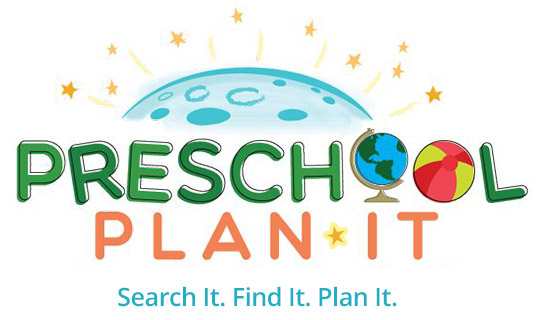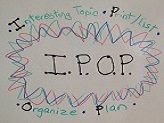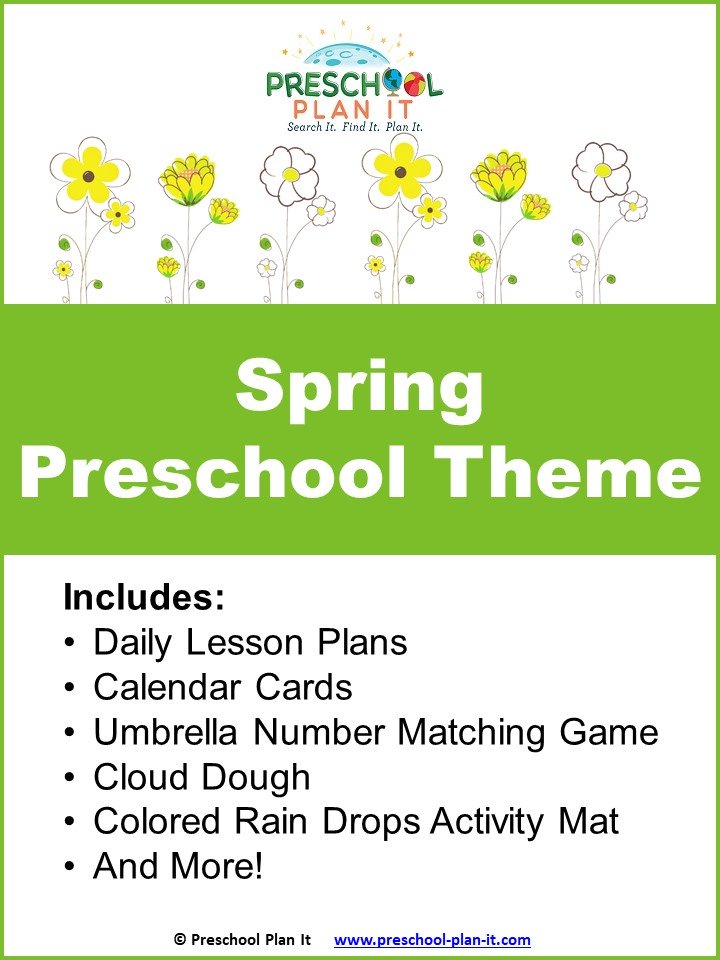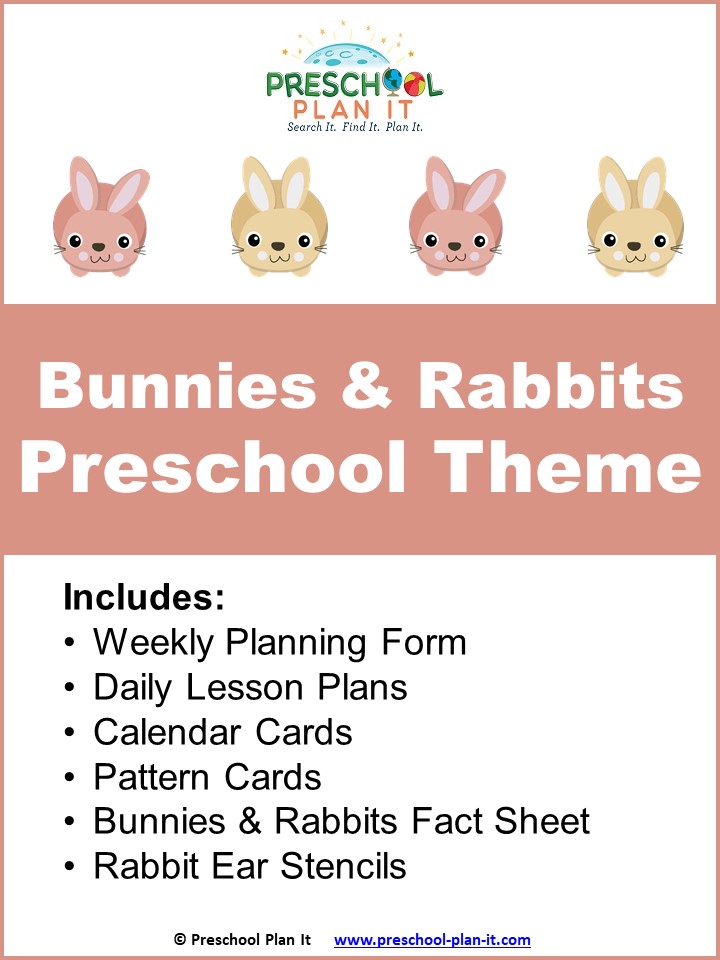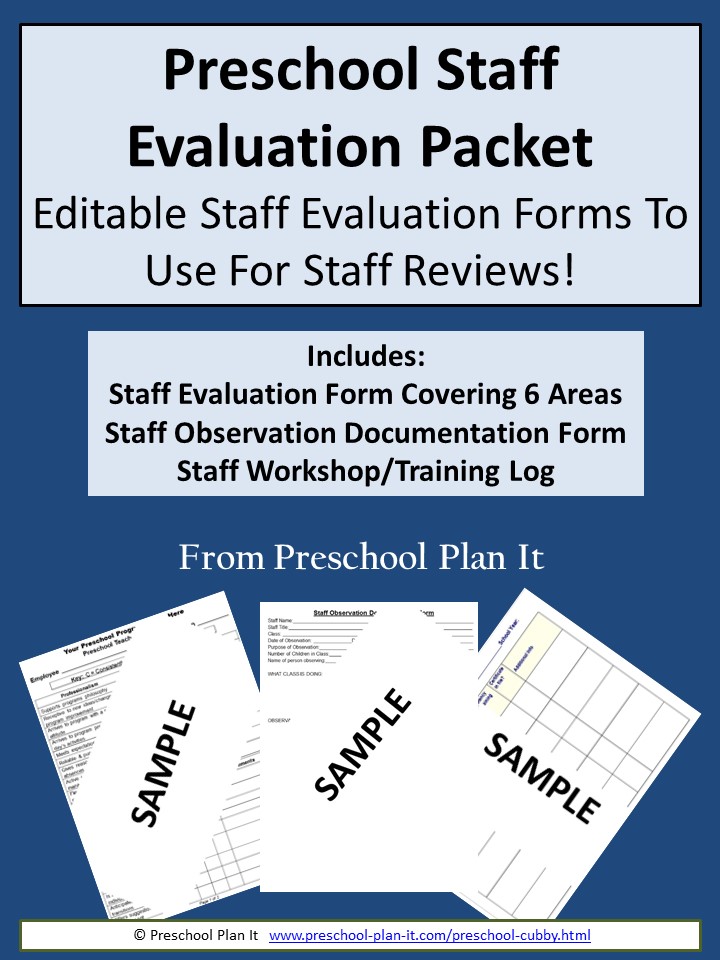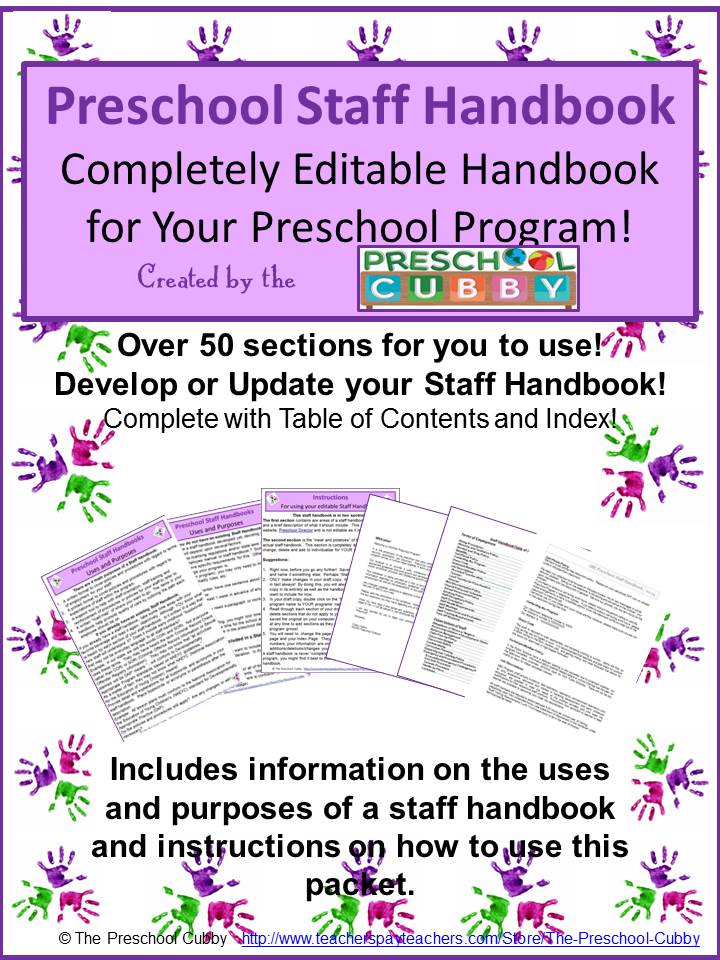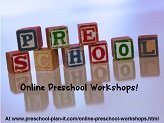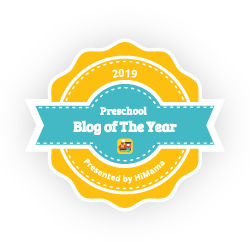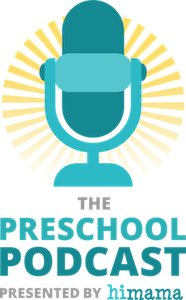- Theme Packs
- Themes
-
Preschool Planning
- Preschool Teachers
4 Steps to Preschool Theme Planning!Preschool theme planning can be time consuming, but
it is easier when you use these 4 easy steps!Sometimes we limit our planning by starting out with a theme name in our heads and then try to come up with ideas for each interest center but become stalled for ideas.
Perhaps you have a great idea for a theme to write up for preschool, but where and how do you begin?
I.P.O.P. is the acronym to remember!
Interesting topic; Print; Organize; Plan.
Before "I POP" the lid off of our theme planning creativity box, let's talk themes!
Traditional Themes
A Transportation theme, for example, is traditional in preschool. Preschoolers love learning about and playing with cars, trucks, airplanes and more. This topic is part of their everyday lives. They drive or walk to school, have seen or ridden on a bus or taken an airplane to go on vacation. This natural interest in something they experience in their lives brings life to the theme.
What about a theme called Sticky? This is not quite a tradition theme! However, it became very compelling for the students of one classroom!
Non-Traditional Themes
A preschool teacher and her coworker observed that their students seemed extremely curious about how things stuck together from magnets, to bristle blocks to paper.
The teachers brainstormed together about how to take this new found interest of their preschoolers and develop it into a unit filled with activities the children learn and grow from.
Remember the Purpose of the Theme
Both of the above examples lend to learning. Activities are provided that promote and support the preschooler's growth and development through a theme that they are naturally interested in.
Preschool themes should be fun, exciting and interesting topics that draw young children into learning.
Sometimes the purpose is to learn specific details about the theme (for example a Caterpillars-Butterflies Theme or a Weather Theme).
However, the ultimate goal is not to turn the students into experts in lepidopterogy (study of butterflies) or meteorologists!
Themes are the basis of the activities you create for art, science, math, dramatic play, reading, writing, circle time and more!
And those activities should help them to grow and develop in all areas of development from social skills (taking turns playing a caterpillar board game) to math skills (counting the correct number of butterflies into each numbered cup) to science process skills (learning the process of caterpillar-butterfly, predicting how long it will take, inferring what color butterfly it will become).
So, you see, the theme is just the vehicle we use to draw the children into activities that help them grow and develop.
Let's Start the 4-Step Process!
I.P.O.P. Defined!
I.P.O.P. is an acronym I use to describe the brainstorming process of theme writing, while keeping the purpose of themes in mind.
I =Interesting, fun and exciting theme choice.
P =Printing any and all ideas that come to mind about that theme name.
O =Organize ideas into interest centers
P =Plan daily and weekly lessons
Working Together as a Team
Ericka, a PreK teacher from Texas, shared a quote with me. It was one that her former principal used to say,
"Great teachers aren't made; they're borrowed from the teacher next door!"
So share your knowledge and ideas with each other! Accept each others' ideas and ways to teach!
So, Let's Plan A Theme!
Let's move on and plan a theme! Here is what you will need:
- Your co-worker(s)
- An 8 X 10 piece of paper and something to write with.
- A very LARGE piece of chart paper and something to write with.
- Highlighters of many different colors (one for each interest center!)
- Your favorite beverage!
Wendy from Vermont says the following about the I.P.O.P. process:
"I discovered your IPOP process in October and have taught the process to my new teacher. It works! It helps us to plan for every area in the classroom and we can teach more when the topic is everywhere." -from Wendy in VT.
So, Let's Begin!
Here is Step 1: The "I" in I.P.O.P.The "I" in I.P.O.P. stands for choosing an Interesting, fun and exciting theme. So, where do you start with choosing a theme or topic? You start with your children's interests! Think about what your children seem to be fascinated with lately. Don't look too hard, just think about their daily conversations. These conversations will lead to you come up with an amazing list of themed topics!
Traditional Theme Interests
You may come up with a traditional theme when observing daily activities and conversations.
One year, we were in the middle of a 2-3 week Transportation theme. We had a classroom pet, "Thunder the Hamster". Well, Thunder got loose the day before we closed for Thanksgiving break. We could not find him anywhere. We talked about leaving food and water for him in case he came out while the school was closed. So we did that.
The school was closed for 4 days. When we came back on Monday, a teacher in the next classroom found him in her trash can..alive, but not well. He had the trash bag wrapped around his back feet, most likely from his attempts to climb out of the trash can.
I took him to the vet. He needed antibiotics and his feet needed to be dipped in a special solution. He also needed water by eye dropper (he was very dehydrated).
The children changed the direction of our transportation theme. They began making their boxes into animal ambulances. They wanted to "doctor up" all the stuffed animals.
We went with it. We switched from Transportation to Pet Care and Hospital Care.
The dramatic play area changed from a mechanics' bay to a Vet Hospital; the Writing Center changed from a billing office to a reception area; the Science Center changed from investigating different types of wheels to mixing colored water to come up with a cure for Thunder.
Your next interesting, fun and exciting theme could be right in front of you! You may come up with ideas because:
Your children get excited when they see tractor trailers drive by your program!
Your children play "cops" a lot because there is a police car supervising a construction project near your program.
Your children play "firefighter" a lot because you are near a fire station and they see the trucks often.
Your children play "hospital" a lot because one of their friends was just in the hospital.
Your children may be fascinated by the recent snow, or ice that is growing on the sides of the buildings!
One of your children find an odd bug or insect and are now on a mission to find more!
Non-Traditional Theme Interest
You may come up with non-traditional theme ideas based on their conversations. Listen to them when they are playing in centers, making up stories in dramatic play or at the writing center, or when they are chatting at snack time! You will notice areas of high interest during those times!
What items do your children seem to be drawn to day in and day out? One time, we put different colored sticky notes at the writing center. They loved them! They tried to figure out what made them sticky? Tape? Glue? Poof, we had a theme idea.... Sticky!
Other ideas:
Are there items in your science center that the children just can't get enough of (such as the Color Paddles, Magnets, Seashells)?
If so, you may come up with unique themes from that. For example, you might have a Color Scientist Theme (how to make colors) rather than a tradition Color Theme where you teach colors.
You might decide on a Magnets Theme where you focus on magnets in all areas of your classroom rather than only in the Science Area.
You might decide on a Seashell Theme rather than having an entire Ocean Theme.
Do your children talk a lot about a specific superhero (Spiderman has been popular in our classrooms for decades!). I'm not a big fan of having themes based on television shows or movies. I am, however, a fan of tapping into the interests of the children.
If superheroes are on the minds of all, have a Superhero Themed week or two. Focus on what makes a superhero super? What makes them a hero? What superpowers would your children have if they could? What would they do with those powers? This could be a GREAT theme!
Are they fascinated with the new Wikisticks you brought into the classroom? Perhaps a theme on candles (wax, light, etc.).
Would You like theme suggestions and
new themes emailed to you each month?Join over 20,000 other teachers and become a member of my FREE Preschool Teacher Club!
You'll receive a new theme with downloadable activities on the 1st of each month.
You'll receive a weekly newsletter with tips and articles to help you continue to be an awesome teacher AND
the first newsletter of each month has my suggested themes for the following month so you can plan early!Sign up Today and I'll send you my Lesson Planning Forms Packet!
These are the forms I use to plan themes!
Yes! I Want To Join! YOUR Turn To Brainstorm!
I'm sure by now you've had many theme/topic ideas pop into your head. Write them down! Write up a list of every single topic you and your coworkers come up with.
Don't think about the activities you might or might not be able to come up with. That will, honestly, slow down your theme idea brainstorming!
Too many times we come up with a great idea but don't realize it because we knock it down with thoughts like "Nah, I'd never be able to come up with enough art activities, or other related activities to go along with that."
Don't do that to yourself! Just write the ideas down, regardless of how silly or far-fetched for activities it may seem! Write down every single idea that comes to mind.
Once you've slowed down with names of ideas, then talk about what your children have been pretending in dramatic play or at the writing center or in the block center. That will trigger more ideas.
Once you have a list (I'm hoping you come up with between 25-50 ideas here), then stop, have some more coffee and snackage and pat yourselves on the backs!
Step 1 of Planning a Theme is now complete!
Step 1.....B
Okay, so you're not really done yet! Give yourselves a couple of days to "walk away" from your list.
Make copies of your list and give out to everyone.
Your job now is to look at the list and circle 2 or 3 topics you'd like to try. You and each of your co-workers should pick their top 2 or 3 topics.
Choose ONE!
This may be a tough chore! Get together for a 15 minute meeting. Share your top 3 picks.
You may find that each of you has chosen the same topic for one of your top 3!
Or you may have each chosen different topics!
The purpose of this meeting is to agree upon ONE topic that you will plan a theme around.
Got It? Have you decided? GREAT!
NOW you are all done with Step One!
Here is the Interesting Topics list I came up with!
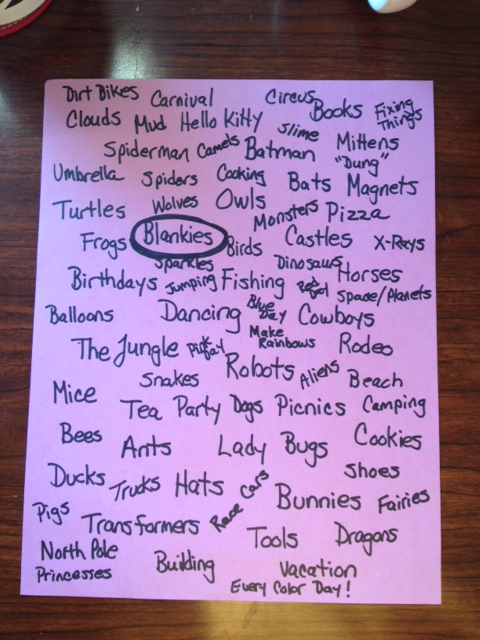
Notes about My List!
A side note about this list.....so, of course, "bathroom" topics came up! We named it "dung"! I actually like this theme...image how fascinated the children will be learning about how dung is used as mud for houses or by reading the book "Everyone Poops"!
One girl wanted to have a PINK day or week, so of course the other children starting choosing their own favorite color. Another great idea!
Why not focus on one color all week along with your main theme? You could have blue tissues, napkins, dishes and cups for snack, different shades of blue blocks, make blue playdough, and all while also carrying out another theme during the week!
Well, based on this list, I decided to go with "Blankies"--actually Quilts-- for my plan-a-theme activity with you!
It has been cold here and I thought a "Quilt" Theme would be fun and could include anything "blankies"!
Next Step
You have now completed the Plan a Theme I in the I.P.O.P. planning process!
The next step to Plan a Theme is the first P in I.P.O.P.: Print/List
You'll find the link to that page below! Check out how to take your list and brainstorm ideas for activities for it!


About This Site:
Hey there! Welcome to Preschool Plan It! I’m Cheryl, a preschool teacher of over 20 years.
I KNOW, I know, you spend hours of time developing your preschool themes, activities and preschool lesson plans each week. You are commited to planning preschool themes and activities that are engaging hands-on, interactive, fun AND meet the goal of supporting each child’s level of growth and development.
I am commited to providing you, the preschool teacher, with everything you need to develop preschool lesson plans and preschool activities for your classroom all in one place!
READ MORE
Join My Free Preschool Teacher Tips Newsletter
You’ll receive a weekly email with planning tips and teaching ideas.
You'll also receive (on the 1st of each month) a free theme starter pack with some printables and activity ideas to get you started planning a theme!Join Now and Get Your First Theme Right Away!
© Copyright 2010-2024 Preschool-Plan-It.com | All Rights Reserved | Privacy Policy & Disclaimer
- Preschool Teachers
